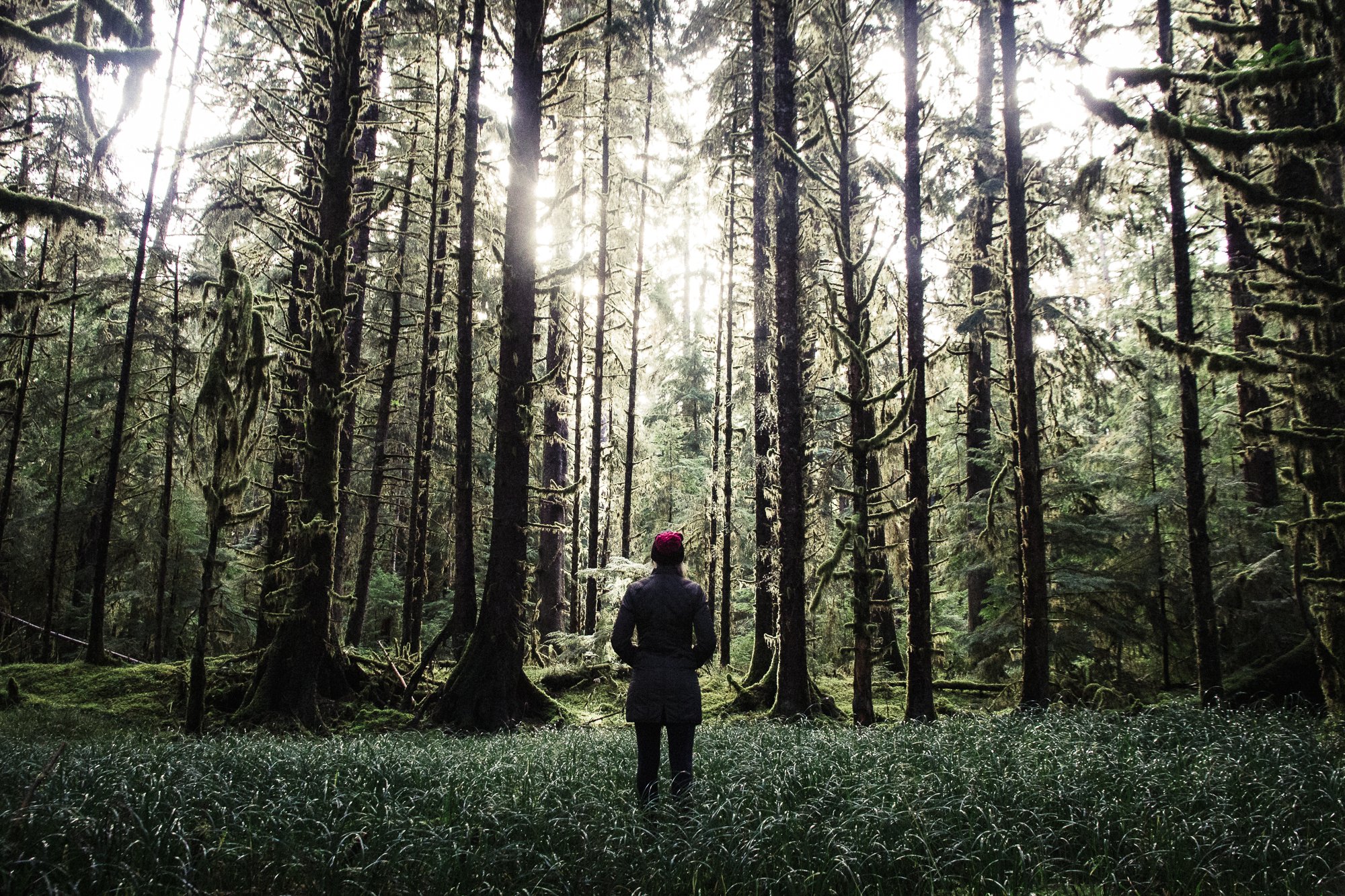I Wanted to Die
I was a child when my aunt said, "I never get depressed. Whenever I wake up in a bad mood, I just decide to be in a good mood." While on the surface, it sounds like a beautiful prescription for living, that is likely when the stigma surrounding depression first took hold in my subconscious. Depression is a weakness, and you can choose not to have it. That stigma – not the depression itself – almost killed me.
Two years ago, I held my dad's hand while he took his last breath. His illness was both unexpected and prolonged, and losing him shook my foundation in life. To escape the pain of his loss, I stayed busy. Really, really busy. I said yes to more work, more travel and more plans than was physically possible to manage. I did everything I could to not slow down for a moment save for some hours of sleep, and I welcomed with open, overcommitted arms any opportunity for distraction. As though sending me a message, whenever I allowed myself to consider pulling back to resurface, slowing for a moment to re-establish my abandoned bearings, personal tragedy would strike life again. Our family dog died, my closest friend in youth passed away, my grandma lost her leg, and within months of that, we lost her. And interspersed with these intimate tragedies, losing two of our mountain bike community's heroes amplified the feelings of loss. Afraid that if I stopped, the avalanche of grief and loss that was accumulating would suffocate me, I kept running. On the surface, my coping mechanism may have resembled an enviable existence full of travel, mountain bike events, and adventures – but in truth, it was a desperate and frenetic attempt at escape. I went through the motions of a grieving person, but I never stood still long enough to feel any of it deeply.
As time sped forward through the compounding loss, I got tired. More than tired, I became chronically exhausted, mentally and physically. Accompanying the exhaustion, I began to experience unexplainable dizzy spells and had a persistently upset stomach. I had weeks upon weeks of colds that recurred and never seemed to end. I gained weight.
In an attempt to sort through the list of symptoms that were rapidly accruing, I began seeing a doctor nearly weekly. They treated me for anemia, a stomach parasite, a hormone imbalance, and adrenal fatigue. When none of those treatments proved effective, they told me that it was all chronic fatigue related and that there was no cure. No end to this was not an option for me, so I sought other opinions; one doctor laughed when I listed my symptoms, and to this day, I'm not sure why. Another doctor handed me a prescription for antidepressants with very little explanation after a five-minute consultation. Surely depression could not be the cause, so I threw the prescription away.
And while I desperately looked for answers, completely blind to what I now recognize as obvious, my symptoms worsened, and my life continued sliding further out of my control. My memory became a concern, and where once I had been structured and efficient, I became disorganized and began missing deadlines. My brain was foggy, making my thinking and reaction times less sharp. Exhaustion made the intimacy of social invitations feel like pressure, which turned into resentment. Keeping busy with work was one thing; the vulnerability inherent in the closeness to those I loved was quite another. So I neglected my personal friendships, and I stopped riding my bike. Hikes that I had once enjoyed easily now left me drained in bed the day after, lethargic and barely able to move.
I became so self-conscious of my fatigue in social situations and my declining lack of fitness that I was ashamed and embarrassed—embarrassed that I worked in the mountain bike industry and wasn't riding my bike and ashamed that my body was so out of my control. I felt like a fraud within my own circle. Feeling good about myself had long since ended, and feeling decent was now a rarity. I frequently cried over the frustration of being sick and not having any answers. I desperately wished for a diagnosis of any obvious and well-understood disease – no matter how severe. My illness wasn't one you could see, and I didn't feel that I could speak about it in any meaningful way when it remained such a mystery to me. No one around me knew that I was sick, and I desperately wanted a physical flag that I could wave with an easily relatable and socially acceptable diagnosis. Most importantly, I wanted a reason for how I felt that wasn't of my own doing; that wasn't my fault. I would have taken anything but the one thing I believed I should be able to just 'think away.'
Yet all of that was nothing compared to the feeling of losing control over my thoughts. I began to have periodic spirals that would leave me wishing for death. Not so much that I wanted to harm myself, but more that if only the universe could intervene on my behalf, I would finally have eternal relief from the exhaustion and intense sadness in my life. I prayed for a final and permanent escape. I understand now it was simply a default switch, an instinctual reaction on an overstressed brain, but it was frighteningly real, and the occasional risky behaviour that resulted became a threat to my life. This I hid from nearly everyone except a few who were too close not to see it.
I was terrified of a diagnosis of depression or mental illness and everything associated with those labels, and my subconscious rallied hard against it. The stigma around depression was ingrained in me in my youth and further reinforced throughout my life, and the psychological barricade prohibiting that connection and understanding stood wide and firm in my mind. Unbeknownst to me, the societal messages of the depressed person as a victim and the suicidal as selfish and merely desperate for attention blindsided me. None of that is true, but the messages were etched in me deeply, and their inherent flaws were impossible to access in my condition. I couldn't consider the possibility that the root cause of my physical ailments was a mental ailment, and instead, I viewed the suicidal episodes as just another symptom.
Fortunately, through it all, I maintained just enough motivation to continue searching for answers, and eventually, I connected with the right professionals—caring, conscientious, and progressive doctors—and I finally felt deeply heard. By understanding what I could not, they validated my physical concerns, pulled back the curtain of mental fog, and allowed me to see my own reality. To avoid dealing with the seemingly unending losses and grief in my life, I had stayed so busy that my stress had become chronic and was breaking my body. Depression wasn't a symptom; it was the cause of everything I was experiencing. In the end, trying to outrun my grief had made it worse, and the result was a slew of debilitating mental and physical symptoms.
What finally brought me to acknowledge and accept my depression - no easy task for the person intent on outsmarting it - was quite literally by the book. On the checklist of possible causes for depression, I could claim every criterion except for recently giving birth. If a person could become depressed by experiencing any number or combination of things beyond their control, was it reasonable to view this as a weakness, selfishness, or a bid for attention? Was it reasonable to ever believe I could think depression away? Seeing that list in its stark reality, I became conscious of the fact that while I had by most measures an amazing life—a loving and supportive community, a career I was passionate about, and plenty of travel and new experiences—I couldn't remember feeling happy or excited in anticipation of anything in a very long time. Once that reality penetrated, everything fell into place, and I had something akin to a full body shift. Suddenly I could take the energy I had been using to maintain a frantic forward progression, using to distract, using to find a physical cure - anything other than identify a mental illness - and I could apply it to the very core, foundational healing that was so necessary.
The road from there to here has been longer and more winding than I could have fathomed at the outset. I've experienced mental anguish of a degree previously unknown to me. But now, through it and in the safety of the other side, I can say that while I don't wish ever to relive it, I am better for it. As trite and overused as that sounds, I am. I have learned so many things about depression, its origins, its commonness and the falseness of its related stigmas. I have learned so many things about myself, my limitations, my fears, and what I am capable of in the face of mental distress and adversity. Perhaps most importantly, I have learned the depth of my resilience. I have learned that I am not defined by depression; it is something I have, not who I am. And I have learned that being unable to think away your sadness isn't a weakness—it's an opportunity to find a strength you didn't know was possible.


